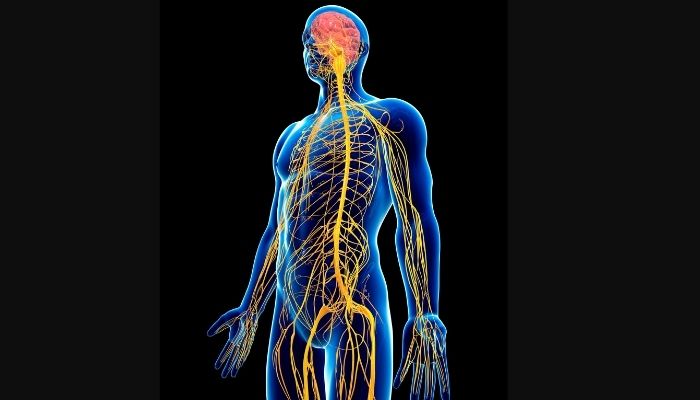Autonomic nervous system testing is a type of testing that finds out whether your autonomic nervous system is working properly or not. The autonomous nervous system controls some of your body functions that occur automatically without your effort. These functions could be breathing, heartbeat, body temperature, and digestion. If there are any interruptions of the functions of ANS then it is called autonomic neuropathy. Some prime causes of autonomic neuropathy are diabetes, autoimmune diseases, certain medicines, and infections like HIV/AIDS.

Autonomic testing may reveal which part of your ANS is damaged and how severe is the damage. With the help of this test, your doctor can adopt the best treatment strategy for your ailments.
The cost of the autonomic nervous testing in India is Rs. 2500 to Rs.5500, depending on your location and place.
Please check the price of the autonomic nervous system test in Delhi/NCR, your nearby centers and other details.
Summary of Autonomic Nervous System Testing
| Also known as | Tilt Table Test, Quantitative Sudomotor Axon Reflex Test (QSART), Thermoregulatory Sweat Test (TST) |
| Test Type | Breathing Test, Tilt Table Test, Bladder Ultrasound |
| BMP test includes | To check the performance of your autonomous body system |
| Preparation | Your doctor will tell you about the preparation. You may need to avoid caffeine, alcohol, and smoke for 8-12 hours before the test |
| Reporting | Within 24 hours |
| Test price | The cost of the autonomic nervous testing in India is Rs. 2500 to Rs.5500, depending on your location and place. |
| Also included in | Health Insurance Plans |
| Related tests | MRI, CT Scan |
Why Do You Need Automatic Testing?
Your doctor may recommend this test if you have the symptoms of autonomic neuropathy.Stomach and Gastrointestinal Symptoms Including:
- Constipations
- Diarrhea
- Nausea and vomiting
Bladder and Urinary Symptoms Including:
- Difficulty while urinating
- Leaking urine
- Urinating very frequently than usual
Heart and Lung Symptoms Including:
- Rapid heart rate
- Shortness of breath or exercise
- Dizziness
- Fainting
- Weakness
Other Symptoms Including:
- Too much or not enough sweating
- Sexual problems like erectile dysfunction in men and vaginal dryness in women
Preparation of Autonomic Nervous System Testing
Your doctor will provide you with some specific instructions that you may need to follow for the test. Sometimes, you may need to follow the below-mentioned preparations before the test.- Avoid caffeine-related drinks for eight hours before your test
- Stay hydrated with non-caffeinated beverages before your test
- Avoid alcohol for 12 hours before your test
- Don't smoke for three hours before your test
Procedure of Autonomic Nervous System Testing
The autonomic tests comprise various tests. Based on your symptoms, your doctor may recommend one or more of the following tests.1. Deep Breathing Test and Valsalva Maneuver
These tests evaluate your heart rate and blood pressure. You need to do certain types of breathing during the test procedure.For both tests, your healthcare professional will place electrodes on your chest and a small blood pressure cuff on your finger.
- For a Deep Breathing Test
- For the Valsalva Maneuver
2. Tilt Table Test
When you change your posture and position, this test measures your blood pressure and heart rate. During the test,- You need to lie down on a motorized table that has a rail
- Soft safety straps will be placed across your body
- Now, experienced healthcare staff will place electrodes on your chest and blood pressure cuffs on one of your arms and a finger. If required, an IV line may also be positioned in your arm or hand to inject medicine or fluids.
- You need to stay at the table for about 15 minutes
- The healthcare staff will slant the table to an almost standing position for up to 45 minutes.
- The person will check your blood pressure and heart rate
- If you faint, the table will be returned to the flat position
3. Quantitative Sudomotor Axon Reflex Test (QSART)
This test measures the function of the nerves that are responsible for controlling sweating. During the test procedure,- The electrodes will be placed on your foot, arm, and leg. The electrodes possess a substance that controls sweating.
- A mild current will be passed through the electrodes. You may feel a warm, tingling sensation as this is done.
- A computer will examine how your nerves and sweat glands react to the electrical current
- The test will be completed within 45 minutes to an hour
4. Thermoregulatory Sweat Test (TST)
This test evaluates how properly your body sweats in a warm environment. During the test procedure,- A special powder will be given to your skin
- A special room will be heated up to stimulate sweating and you will be kept there. You feel uncomfortable due to the heat and humidity
- As you sweat, the powder will change color
- The pattern of your sweat may portray whether you are sweating normally or not
- The test usually takes 40-65 minutes to complete.
5. Bladder Ultrasound
This test identifies problems with your bladder. This bladder is controlled by autonomic nerves. The ultrasound is performed once you urinate to see how much urine is left in the bladder. During the test procedure,- You need to lie on a table where your lower abdomen is exposed
- The healthcare staff will spread a special gel on the skin of your lower abdomen
- The provider will move a wand-like device, called a transducer to see the pictures of your lower abdomen
- The device will produce sound waves into your body.
- The waves are recorded and converted into images on a monitor


